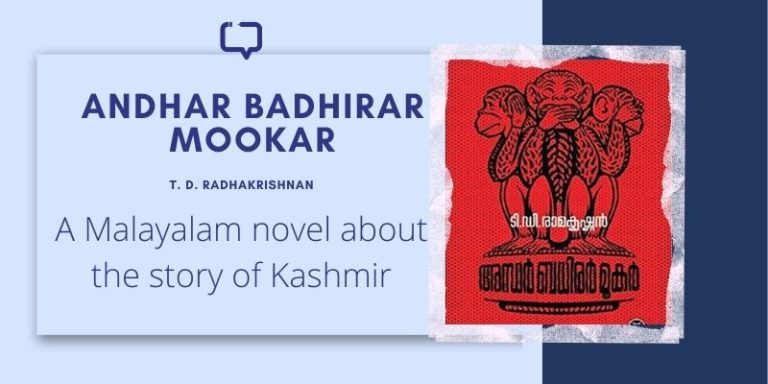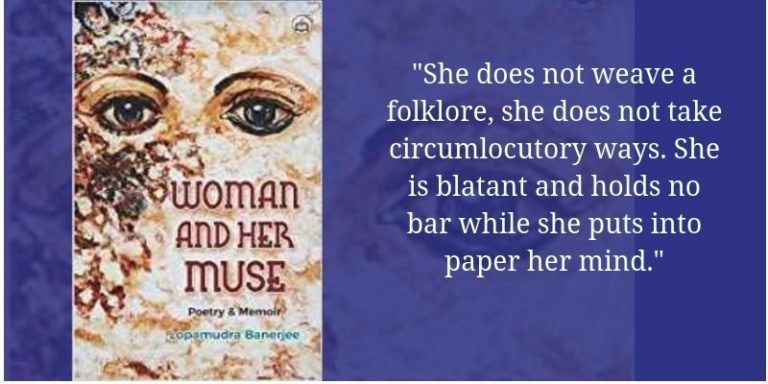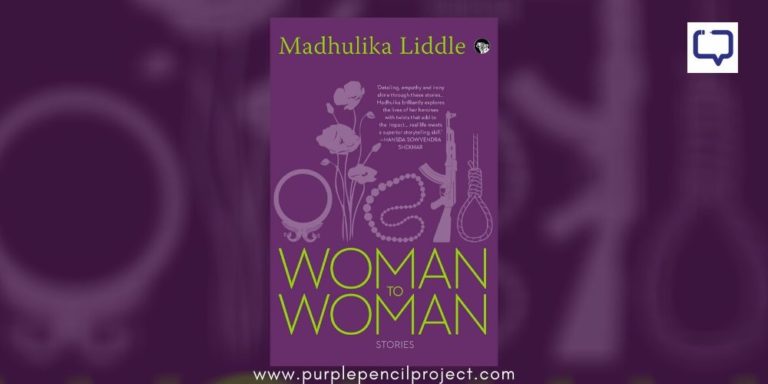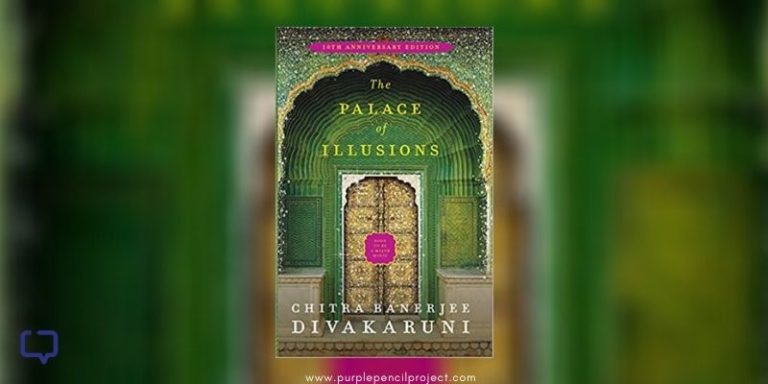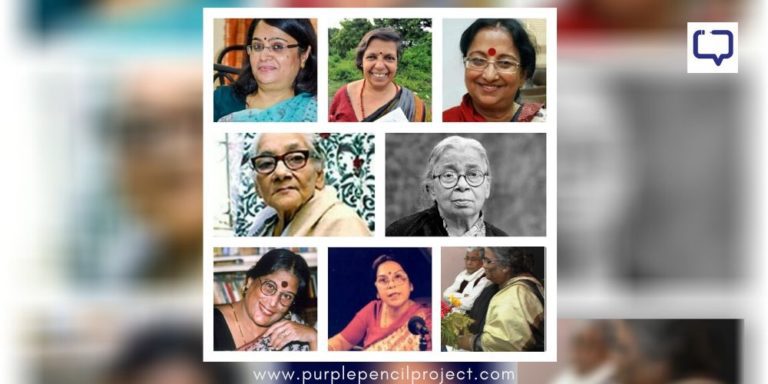Amritesh Mukherjee from Team P3 was in conversation with Mrinal Pande at the Jaipur Literature Festival, 2024.
Mrinal Pande has seen journalism through its thick and thin, its ups and downs, and she understands its current (and past) state better than most. She was the first woman chief editor of a Hindi daily, the first woman to be the chairperson of Prasar Bharti, and the author of several brilliant books. She has a distinct voice and perspective, and she shares some in our conversation. Excerpts:
In Conversation with Mrinal Pande
Amritesh Mukherjee: You are one of the most esteemed journalists and authors with a vast repertoire and expertise in several fields over many years. Journalism has come a long way since the time you joined. What are your thoughts on the current participation of women in journalism?
Mrinal Pande: There are two points here. One is the participation of women as workers within the media. That has come up a bit, but not too much. Where it has come up is the English media, largely. That’s because middle-class to upper-middle-class girls have the advantage of having a good education and familial support. Whereas, girls who grow up in smaller towns, studying the vernacular media, have limited job options, and their families don’t like them to move out too far away, especially if they are married.

So, their job opportunities are fewer, and when they get a job, the fear of losing it is also quite great because a lot of them are earning members of the family. They stick to the safe part, in the sense that they want to be posted on the desk, although everybody knows that working at the desk gets the slowest promotions. You have to be out in the field. In the English media, this is happening, and even the anchors have now taken to going to the field and reporting from there. But in Hindi media, you seldom find women reporting from the field.
I’m part of a group called the National Media Foundation, which gives an annual award to women journalists called the Chameli Devi Jain Award. Every year, about 10 to 12 shortlisted articles in Hindi are sent to me to judge, and I’m really amazed at the poor quality of the writing and the subjects. All of them write the same sub-stories about dahej, peeda, utpidan, jaanch, yeh woh (dowry, anguish, harassment, investigation, this and that). But none of them really bother to give any data. None of them seem to have studied the subject properly.
Even if they talk about the rural areas, you know they’ve picked it up from somewhere. It is not a felt reality; it is not something they have lived through. Unless you are out there and, of course, you risk losing a lot, your reputation, you risk losing relationships, and your marriage becomes infinitely complicated. All that happens. But I find women still remain poor risk-takers compared to men. And so much as I mourned it as an editor, I had to give the beats to male reporters. Because I knew I would get the report in time. I would get a good, well-researched report.
Girls who grow up in smaller towns, studying the vernacular media, have limited job options, and their families don’t like them to move out too far away, especially if they are married.
– Mrinal Pande
If I told them to rewrite it, they would not cry. They would just go out and write. I support women very much, but I find that women make it very difficult for them to be supported beyond the point. When it comes to absolute freedom towards the people, the government, they refuse to acquire experience, because it comes with a cost. Then they say it’s because we are women. No, it’s not because you are a woman, because you are either lazy workers or you are risk averse. That’s my take.
Amritesh Mukherjee: What is your take on journalism’s evolution from a socio-political perspective?
Mrinal Pande: I’m afraid for women, primarily as news consumers in the regional languages. I find more and more political parties are honing in on women as ideal vote banks, which are very easy to phuslao (convince). You tell them: aap toh hamari maata hain; aap toh devi hain; aap toh pujya hain; nariyastu pujyante ramyante; hamari behenein, betiyaan; beti bachao; main tumhara mama hun; main tumhara chacha hun. (you are our mother; you are a goddess, you are venerable; god resides there where women are worshipped; our sisters, daughters; save the girl child; I am your maternal uncle; I am your paternal uncle. Give them two slaps. You are not my relatives.)
Girls who grow up in smaller towns, studying the vernacular media, have limited job options, and their families don’t like them to move out too far away, especially if they are married.
– Mrinal Pande
Do thappad lagao. Arre tum koi hamare rishtedaar nahin ho. Yeh batao tum hamare liye kya karoge? Gaanv ki sadak pakki karaoge? Hamare toote hue hand pump theek karaoge? Hamari ladkiyon ko naukri doge? Hamare panchayat ke chunav mein sarkari logon ko dakhalandaazi karne se rokoge? (Tell us what you will do for us. Will you pave the roads in the villages? Will you repair the broken handpumps? Will you give jobs to our girls? Will you stop the government officers’ interference in Panchayat elections?)
These are the questions women are still not asking. Kehne ko yeh hai ki har ghar mein (We can say that in every home), girls are educated and can read the newspaper. But carry out a survey to see what they read. Mostly, it is the pullouts, such as the Jhankar and Bhangkar. All these Hindi papers bring out special pullouts for women.

It’s all about cookery, bringing up children, this, that, the other. What are we doing to them? Women are not protesting, and the families are happy. Way back in 1984, when I brought out a hardcore feminist magazine called Bama in Hindi, Amar, our circulation manager, pulled me up and said, “Mujhe aapki magazine bechne mein parhez hai kyunki jis din yeh prati mere ghar aati hai, hamara miyan beewi ka jhagda ho jaata hai.” (“I am reluctant to sell your magazines, because the day one issue comes into my home, we husband and wife end up quarrelling.”)
If families are cozy about women being submissive, docile, undereducated, and under their thap, then who’s to rescue women? They have to pull up their own socks, I’m afraid. They have to be risk-takers.
Amritesh Mukherjee: This reminds me of Ravish Kumar’s post during the Olympics. He highlighted the headlines by a major newspaper about celebrating the fact that hamari betiyon ne kuch kiya hai (our daughters have done something). His primary point was ki un players ko beti hona kyun zaroori hai us cheez ko celebrate karne ke liye (why is it essential for them to be “our” daughter to celebrate their performance).
Mrinal Pande: Exactly, toh yeh jo superficial sympathy hai auraton ke liye yeh magarmacch ke aasun hain. (Exactly, this superficial sympathy that people have for women is crocodile tears.) It is not a genuine concern. If it was a genuine concern, charity would start at home. You would allow your daughter to take up a job, go out in the field, and would, in fact, ask her to ask the editor why she can’t go for reporting. Yeh hota hai. (This happens.) People need to really think about these basic questions, especially the women.
In another generation, they have come some way. I find young girls, but most are girls from well-off families. They can take a risk. They can not get married till they are 32. But if you are born in Darbhanga, Balia, or Almora, and you’re 19 and shaadi ki baat nahin chal rahi hai (planning for your weddings is not in swing), then khusur pusur (whispering) starts. So your mother and your father must have hard enough hearts to say ki abhi nahin, hum abhi nahin karna chahti (we don’t want to get her married right now). How many Indian parents are willing to do it?
People need to really think about these basic questions, especially the women.
– Mrinal Pande
Because the girl needs a signal from the parents. Girls love their parents. In fact, in most cases, more than the sons, but the parents will not come out and say ki haan beti tu aage badh hum tumhare saath hain (yes, daughter, go ahead, we are with you). Itna karo par itna mat karna (do this but not too much). These are questions that have to be asked. They’re not being asked.
Amritesh Mukherjee: What do you think about the state of journalism in the last ten years?
Mrinal Pande: Maine pehle hi bhavishyavani kar di thi ki ownership pattern badal raha hai. Pehle angrezi mein badla. (I already predicted that the ownership patterns are changing. First, it changed in the English media.) It started in a very small way, and I noticed it then. Somewhere around 2010, the air began to change, and editors became shareholders in the company, if you remember. I will not name names; you will know the names.
But in English papers, every editor became a shareholder. I was also offered shares in Hindustan Times, which I refused. I said, on point of principle, ghoda ghass se dosti karega toh khayega kya (if the horse makes friends with grass, what will it eat?). I don’t want that. They said it’s going to be very valuable. I’m sure it is because it’s one of the biggest houses. They were a little hurt because they thought it was their gift to me to show they appreciated me. But I told them that no, I don’t want to be a shareholder.
Patan ki shuruat bodh roop se hoti hai. Prabhash Joshi se meri is baat mein bahut jhagda hua hai. Prabhash Joshi, when he went out to petition against paid news and said patrakaaron ka patan ho gaya hai; I said patrakaaron ka nahi hua hai. Malikon ne discover kar liya hai ki patrakaaron ko ghoos mil rahi hai, usse das guna zyada goos hum kyu nahi le. Akhbaar toh hamara hai. Toh aap malikon se kyu nahi ladte hain? Aap Ramnath Goenkar ki parivaar se kyu nahi ladte hain? Aap chote se subeditor se kyun ladte hain? He got very angry. He said tum ismein bhi feminism dikha rahi ho.
I said feminism has nothing to do with it. It has everything to do with justice. Isiliye jiske haath mein satta hai, jo faisley le raha hai, uski taraf dekhiye. Aur hote hote yeh hua ki big papers started buying up small papers. Indore ka Nayi Duniya itna khoobsurat, itna badhiya paper hua karta tha. Usko Dainik Jagran ne khareed liya, ab aap uski dhaja dekhiye.
(The fall begins with awareness. I have fought a lot with Prabhash Joshi about this. Prabhash Joshi, when he went out to petition against paid news and said the journalists have fallen, I said that it is not the fall of journalists. The owners have discovered that journalists are being bribed. Why don’t we take bribes worth ten times more than them? It is our newspaper. Why don’t you fight with those businessmen? Why don’t you fight Ramnath Goenkar’s family? Why do you fight a small subeditor instead? He got very angry. He said you are also applying feminism to this issue.
I said feminism has nothing to do with it. It has everything to do with justice. That’s why you should focus and monitor the ones who have political power and are making decisions. Gradually, big newspapers started buying up small newspapers. Indore’s Nayi Duniya used to be a brilliantly beautiful paper. Dainik Jagran bought it, and now you see its condition.)
Regional papers have been bought out or deeply penetrated by the local governments, most of which are right-wing leaning. I have nothing against the right wing. Right or left is okay, but disinformation at the time of elections really bothers me, and that needs to be checked out. The source is the owners and the board rooms, which are now listed companies. They’re listed companies, so when the papers are put out at the end of the year, nafe nuksaan ka hisaab kitaab rakha jaata hai (profits-losses are accounted for), the boardroom wants to improve the bottom line. They don’t look at expenses.
Sabse pehle Hindi akhbaaron par katauti hoti hai, ki inke bureau mein 14 log kyun hain. Hindi waale 7 se kaam chala sakte hain. Mahadevi Verma ki kahani hai na, ki Gheesa naam ka ek Dalit ladka tha, usko padhaati thi, toh usko unhone naya kurta laakar diya toh ladko ne kaha ki inki jaat ko kaun naya kurta deta hai. Jinka kaam jhoothe khaane se chal sakta hai toh unke liye taaza pattal kyun bicchai jaaye. Toh Hindi waalon ka yahi raha hai. Phir bhi Hindi waale chipke rehte hain.

Lekin main unko judge nahin karti hun kyunki maine itne saal unke saath kaam kiya hai, they are not bad people. It’s just that they’re so tied up to basic necessities of life, and they’re paid poorly. They’re paid probably one-quarter of what their English counterparts in the same company are being paid, yet they cling to their jobs. They are also risk averse. If they take risks, some of them did and they’re doing very well. Look at Ravish. He stepped out, and he’s done very well kyunki aap ko apne upar bharosa hona chahiye. Agar aapko apne upar bharosa nahin hai toh aap re re ri ri karte rahiye.
(The first budget cuts were reported by Hindi newspapers, asking why there are 14 people here. The Hindi department can make do with 7 people. There’s a story by Mahadevi Verma about a Dalit boy named Gheesa. She used to teach him. One day, she gifted him a new kurta, so the other boys said who buys new kurtas for their caste? Why should fresh food be cooked for someone who can make do with pickings? This is how it has been for the Hindi journalists.
Still, the Hindi journalists keep at it. I don’t judge them because since I have worked with them for so many years, I know they are not bad people. It’s just that they are so tied up to basic necessities of life, and they’re paid poorly. They’re paid probably one-quarter of what their English counterparts in the same company are being paid, yet they cling to their jobs. They are also risk averse. If they take risks, some do, and they’re doing very well. Look at Ravish. He stepped out, and he’s done very well because you should have self-confidence. If you lack that confidence, you’ll be left rumbling.)
Amritesh Mukherjee: Does it also not come from a sense that I want to cover what I know and show what I know? Is it always risk aversion, or is it sometimes about wanting to show my place, to bring out what’s happening around me?
Mrinal Pande: Fine, then do it very well, and no editor worth his or her salt will turn it down. A good story is a good story. Chhattisgarh mein Congress ki sarkaar thi. Chhattisgarh mein naksali upadrav ho raha tha. Humne apni reports uske baare mein chhaanpi about the justification of this kind of aggression against the government and the corruption within the government. Yeh acchi story thi, and HT was a largely Congress-supportive house. But nobody complained. Never. I never got rapped on the knuckles for that because everybody recognizes a good story when they see it.
Lekin agar aap likhoge hi nahin yeh sochke ki isse unko bura lag jaayega aur phir mere upar aanch aayegi, arre tum editor ko dekho na. Jab editor keh rahi hain ki I have drawn firewalls, and I am standing at my feet, tum likho. Kitne mukkadmein maine lade hain, mere baal safed hogaye. Abhi bhi mere upar national sedition ka mukadma khatam nahin hua hai. Mera yeh kehna hai ki jab tumko koi sahara de raha hai tab bhi tum sach nahin bologe toh phir hum aap par afsos hi kar sakte hain. Phir itna ri ri na kariye mere saamne.
(Fine, then do it very well, and no editor worth his or her salt will turn it down. A good story is a good story. The Congress was in power in Chhatisgarh. Naxalite uprising was taking over Chhatisgarh. We published our reports about the justification of this kind of aggression against the government and the corruption within the government. This was a good story, and HT was a largely Congress-supportive house. But nobody complained. Never. I never got rapped on the knuckles for that because everybody recognises a good story when they see it.
“Nobody complained. Never. I never got rapped on the knuckles for that because everybody recognises a good story when they see it.”
– Mrinal Pande
But if you don’t even write about issues like these, thinking that some people will take offence and then you’ll be under fire, turn to your editor. When the editor says that I have drawn firewalls and am standing at my feet, you just write. My hair has greyed fighting cases. Even today, the national sedition case against me is not closed. I am saying that when someone is ready to support you, and still you choose not to speak the truth, I can only pity you. Just don’t grumble then in front of me.)
Amritesh Mukherjee: You have worked with different forms of literature: translations, novels, short stories, and more. Which form do you prefer most, if you have a favorite form? Is there a different approach you take when writing each of the forms? Does it require a change in perspective?
Mrinal Pande: I find that jaise paani apni raah khoj leta hai, waise hi kaun material kahani banega, kaun material upanyaas banega yeh material tay karleta hai aapke andar. Phir dheere dheere jab aap material ko gaur se dekhte hain toh aap ke andar woh cheez banne lagti hai. (I find that just like water finds its own way, which material becomes a story or a novel, the material itself decides. When you start delving into the material, it starts formalizing within you.)
Some people are like architects; they create a structure that is very clear and strong. Then, they set out to find facts, stories, and characters to fill it. I allow the story and the characters to have a free run initially. Sahela Re ke saath yahi hua. (The same happened with Sahela Re.) It started with people who loved music and aise rasik kahan chale gaye, kyun chale gaye. Phir mujhe laga ki rasikon ki bhasha bhi khatam ho gayi (Where have the connoisseurs gone, and why did they go? Then I felt like their elegance in the language is also extinct).
Hamare ghar mein (In our house), my mother loved music. She was in Shantiniketan, and she adored music. She learned from Ustad Ahmed Ali Khan Sahab, and he had told her ki tum music mein aa jao, par sawal hi nahin tha (you should go into music, but there was no chance of it). She was married off, and my father didn’t like family women singing in public.
But I learned music for years and had 2-3 gurus from various Gharanas. And then I was like a great gatherer. I’ve always been a gatherer of stories. Kaan se sunti rahi, jama karti rahi. Toh bahut saari cheez rahi. Phir maine kitab music ke upar likhi Dhwaniyon Ke Aalok Mein Stri, which is about women and kotha women who protected music during the last days of the Mughal Sultanate in Awadh before the British came and declared them all fallen women and that particular avenue was closed. The men became Ustaads and Pandits and established Gharanas, but women got lost in the mist of time. Phir maine khodna shuru kiya, toh bahut maalumat mili.
(But I learned music for years and had 2-3 gurus from various Gharanas. And then I was like a great gatherer. I have always been a gatherer of stories. I kept on listening and collecting them. So a lot of things were there. Then I wrote a book on music, Dhwaniyon Ke Aalok Mein Stri, which is about women and kotha women who protected music during the last days of the Mughal Sultanate in Awadh before the British came and declared them all fallen women and the particular avenue closed. The men became Ustaads and Pandits and established Gharanas, but women got lost in the mist of time. Then I started digging and found a lot of information.)
Ab sabki kambakhton ki boliyan farak warak us zamane mein. Woh Rampur waale alag tarah ki Urdu bolte the, Delhi waalon ki Urdu alag thi, Lucknow walon ki Urdu alag thi. Phir Pahadiyon ki Hindi alag thi, Banaras ke Panditon waali Hindi alag thi. Phir yeh hua ki kaise karein. Then it struck me ki jaise main research kar rahi hun, main kitne sroton se le rahi hun. Supposing I visualize myself as somebody in search of material from a lab that has been destroyed.
(Everyone had different dialects of one language. People in Rampur spoke one type of Urdu, which differs from the one in Delhi and Lucknow. Pahadi Hindi is not the same as the Banarasi Pandit Hindi. There was confusion as to how to proceed. Then, it struck me that my research is being done via many sources. Supposing I visualise myself as somebody in search of material from a lab that has been destroyed.)
Toh kahin se mujhe ek petri dish milegi, kahin se ek parakh nali milegi, kahin se kuch chemical milega, kahin ek toota hua phata formula milega… let me put a collage together and see if it makes a story. Jab yeh shuru hua toh phir characters bhi dimag mein aaye, jinse main kuch mili thi, kuch ke baare mein suna tha, kuch ke baare mein qisse kahaniyaan thi. Woh sab kuch mila karke finally iska yeh roop tayaar hua.
(I will get a petri dish from somewhere, a test tube on a dusty counter, some chemical solution in a beaker, and a broken old formula on a blackboard… let me put a collage together and see if it makes a story. When this began, the characters were created in my mind: some I had met, some I had only heard about, and only stories about some characters existed. A story was born by bringing together all these elements.)
Amritesh Mukherjee: Your books have also been translated by other people. When you read those translations or work with the translator, kya kabhi tees rehti hai ki yaar yeh main hi translate kar leti (do you ever feel I could have translated this better myself)?
Mrinal Pande: Jab Sahela Re ka translation hua toh us ladki ne khud kaha ki main karna chahti hun. She’s a young girl, she translated a novel by my mother. Maine usse kaha ki, you’re very young, and this is a very mature, perhaps the last novel of an ageing woman. Toh she said nahin nahin main karungi. Bahot utsaahit thi toh mujhe uska utsaah dekhkar accha laga. Toh maine use kaha accha accha, toh first chapter ka kuch hissa karke bhejne ko kaha. Usne bheja, utna accha nahin tha. Toh she said ki no I’ll try again and send. She did improve it a bit.
So I made her swear that when the whole thing was ready, she said, I’ll keep sending you parts. I said, no, don’t do that. Send me the whole thing when it’s finished. So I can give it once over taaki ek uniformity rahe. Toh us waqt jab usne mujhe bheja tab COVID waala period tha. So, I had time, and I had a very good editor. Unfortunately, wo bimaar padh gayi, phir uske husband bimaar padh gaye, phir doosri editor aayi. She turned out to be equally good, also. And they all became very involved in this. The new editor was a Bengali.
She also got quite involved in the thing because she said Shukman Chacha reminds me of so and so and things like that. So, she got totally involved. I had to put in a lot of work. But I’m pleased with the end result, especially because a younger person did it.
(When Sahela Re was in talks to get translated, the translator contacted me, saying that I wanted to do it. She’s a young girl, she translated a novel by my mother. I told her you’re very young, and this a very mature, perhaps the last novel of an ageing woman. So she said no, no, I will do it. She was very excited, and her excitement convinced me. I told her to send me a translation of a part of the first chapter. It wasn’t that good, but she said she’ll try again and send it.
“I’m very indulgent to the young because I think ki agar woh log nahin karenge toh phir koi nahin karega.”
– Mrinal Pande
She did improve a bit. So I made her swear that when the whole thing was ready, she said, I’ll keep sending you parts. I said, no, don’t do that. Send me the whole thing when it’s finished. So I can give it a once-over to maintain uniformity. This was during the COVID. So, I had time, and I had a very good editor. Unfortunately, she fell ill, then her husband fell ill, and then another editor came. She turned out to be equally good, also. And they all became very involved in this.
The new editor was a Bengali person. She also got quite involved in the thing because she said Shukman Chacha reminds me of Thakur so and so and things like that. So, she got totally involved. I had to put in a lot of work. But I’m pleased with the end result, especially because a younger person did it.)
I’m very indulgent to the young because I think ki agar woh log nahin karenge toh phir koi nahin karega (if they don’t take up the initiative, no one else will). She’s done a good job, and she worked very hard. Maine usko bahot daanta, maine usse baar baar likhwaya (I often scolded her and made her rewrite multiple times). I’m a very demanding person. But she did that, and that is a quality I value very much. Finally, we gave it to the super editor, and he also went through it and perfected it. Now we have the result.
Amritesh Mukherjee: What are some of your literary influences, and would you like to recommend some books?
Mrinal Pande: I would not like to recommend because I’ve never sought a guru, and I don’t think one should seek one. One should carve a path for oneself but read a lot. Read a lot and meet various people. I’ve read a huge arc from the 1920s ki Hindi se lekar ke aaj ke jo naye bachche likh rahe hain wahan tak (from the 1920s Hindi to the contemporary writing in Hindi). I read a lot, and with each reading, I learn a lot, too. People are in a hurry to start writing.
Read a lot before you write, and don’t be judgmental.
– Mrinal Pande
Hota hai, kuch logon mein itni pratibha hoti hai ki pehli cheez woh jo likhte hain (Yes, some people are born with a talent that even the first thing they write) comes out very complete. But that’s rare. For the rest, my advice would be to read. Read a lot before you write, and don’t be judgmental.
One thing you have to suspend is judgment. Just ask yourself ki dil ko chhooti hai ki nahin. Agar chhooti hai toh kis tarah ki, kisne likhi, kya likhi doesn’t matter. Aur agar nahin chhooti hai toh aapne likhi ho ya aapke best friend ne likhi ho toh bhi doesn’t matter. It’s a very heartless profession. When you write, I tell my husband, us waqt tum koi mere aankh ke saamne nahin chaahe kuch ho jaaye. That’s a weakness, but that’s the way it has to be.
(One thing you have to suspend is judgment. Just ask yourself if it touched your heart. If it does, how, why, who wrote it doesn’t matter. And if it doesn’t affect you, it doesn’t matter if you or your best friend writes it. It’s a very heartless profession. When you write, I tell my husband, you are nothing in front of me. That’s a weakness, but that’s the way it has to be.)
Amritesh Mukherjee: Thank you so much for the interview.
Mrinal Pande: Thank you.











